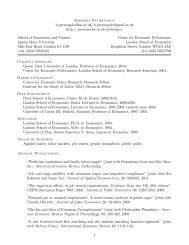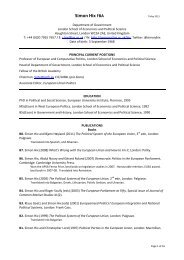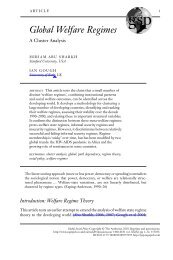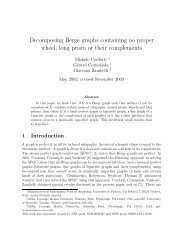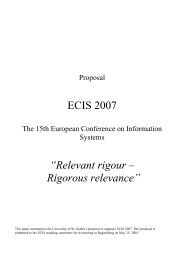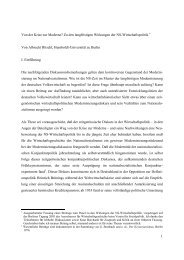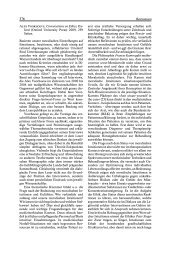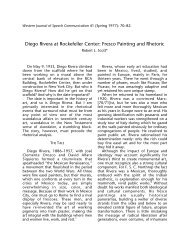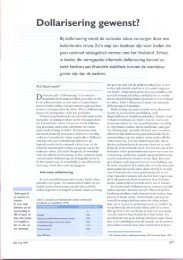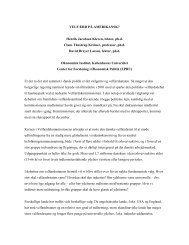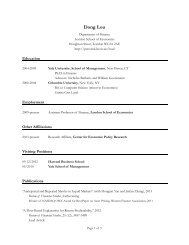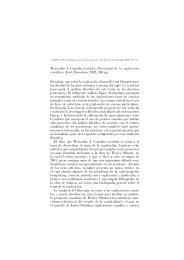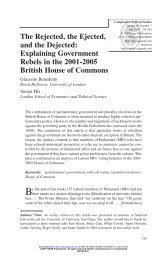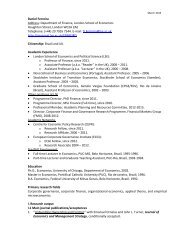View PDF - LSE - London School of Economics and Political Science
View PDF - LSE - London School of Economics and Political Science
View PDF - LSE - London School of Economics and Political Science
You also want an ePaper? Increase the reach of your titles
YUMPU automatically turns print PDFs into web optimized ePapers that Google loves.
Conclusion: Calling for the right to the city in China<br />
China’s property rights reform <strong>and</strong> strengthened protection <strong>of</strong> private properties have<br />
given rise to the emergence <strong>of</strong> property rights activism especially among homeowners<br />
who may “become more audacious in fighting for their entitlements <strong>and</strong> in defending<br />
their private paradise” (Zhang 2010:4). Nail-houses reflect this activism translated into<br />
urban struggles, frequently launched by homeowners in an attempt to defend their<br />
ownership rights <strong>and</strong> property-based interests (Yip <strong>and</strong> Jiang 2011; Zhang 2004).<br />
Governments have reportedly made some concessions to adopt more inclusionary<br />
measures such as public hearings <strong>and</strong> to alleviate residents’ frustration against<br />
demolition <strong>and</strong> displacement (Cai 2007; People’s Daily 2011). However, at present,<br />
participating in state affairs is likely to be regarded “as a state-conferred privilege rather<br />
than as a natural or inalienable prerogative” (Perry, 2008:46).<br />
What might be the way forward for China’s urban inhabitants? The contextualisation <strong>of</strong><br />
the right to the city in urban China suggests that it is imperative to pay attention not<br />
only to homeowners <strong>and</strong> public tenants but also to migrants who are the most alienated<br />
in the country’s urban contexts. While not discounting the rising importance <strong>of</strong><br />
homeowners' property rights activism in claiming citizens’ rights, it is also necessary<br />
for this activism not to fall into the narrow dimension <strong>of</strong> advocating the rights <strong>of</strong> only a<br />
particular segment <strong>of</strong> urban inhabitants nor limit itself to claiming rights to distributive<br />
justice only for reasonable compensation. As Dikeç points out, the right to the city<br />
needs to be claimed by “all those who inhabit the city without discrimination”<br />
(2001:1790). In other words, there is a need “to bind people together, but in a<br />
togetherness in difference” (Merrifield 1996:201; original emphasis).<br />
What the empirical analysis discussed earlier in this paper suggests is that building an<br />
alliance may be challenging but not impossible. It is challenging because a substantial<br />
number <strong>of</strong> people still do not agree on the inevitability <strong>of</strong> nail-house phenomenon, <strong>and</strong><br />
may accuse nail-householders as pursuing self-interests. One <strong>of</strong> the tasks <strong>of</strong> the alliance<br />
would therefore be producing a "language <strong>of</strong> commonality" (Merrifield 1996:200) <strong>and</strong><br />
win the hearts <strong>and</strong> minds <strong>of</strong> neighbours whose views tend to mirror authorities’ views<br />
<strong>and</strong> propag<strong>and</strong>a that <strong>of</strong>ten criminalise nail-houses. Another significant challenge may<br />
also rise from the transient nature <strong>of</strong> migrants who may simply opt out <strong>of</strong> political<br />
alliance. Nevertheless, they stay increasingly longer in their host cities. Thus, their<br />
Shin, H.B. (2013) Antipode DOI: 10.1111/anti.12010 | Page 23 <strong>of</strong> 29



